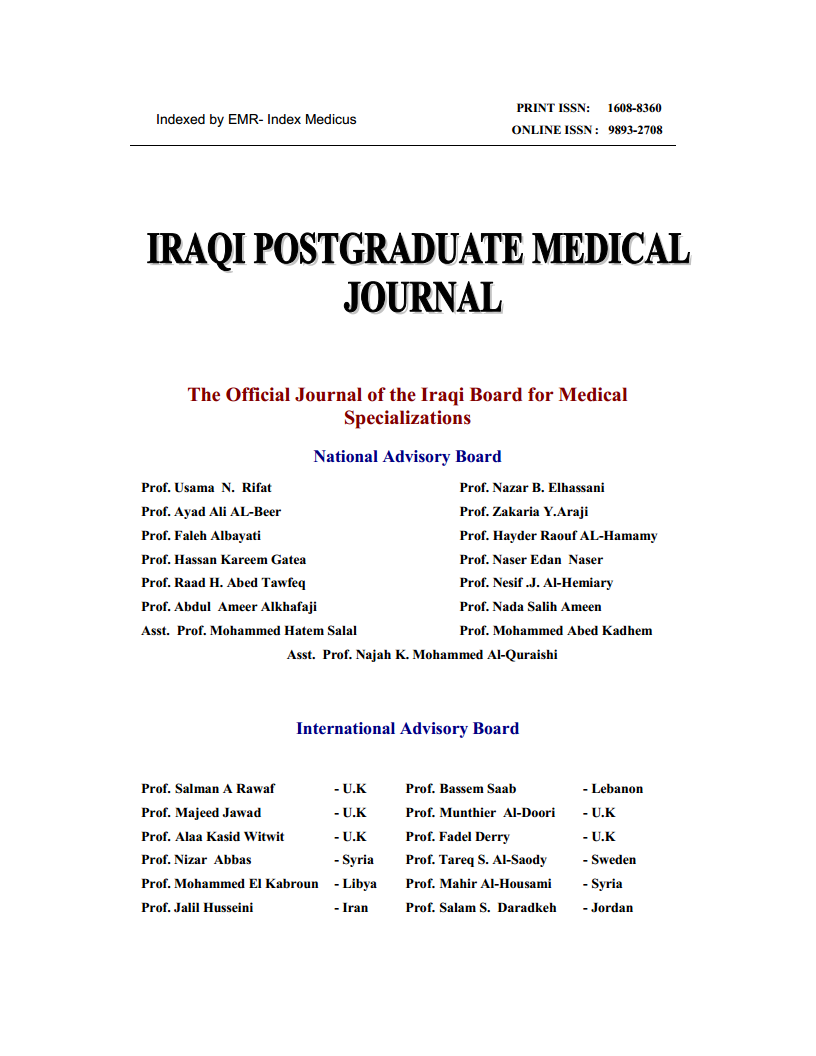Abstract
Children's acute diarrhea is an extensive global problem .It has increased in Iraq seventeen fold after
wars and economic sanctions. Proper management is important in saving lives and prevention of
complications. We wanted to see what drugs were used, how often and how it compared with oral
rehydration use.
METHOD:
The mothers of 175 children who presented with diarrhoea of acute onset and admitted to the
Children Welfare Hospital, Baghdad, over a period of 8 months were interviewed.
RESULTS:
Apart from 39 children, who had parenteral infections, two had celiac disease and one accidentally
ingested a laxative, the others were diagnosed as gastroenteritis at hospital. Of the 102 children
diagnosed as gastroenteritis before admission, 29(28%) had their stools microscopically examined
and a parasite was found in 12. Seventy- three (75%) of those who did not have stools examined, and
(59%) of those who had no parasites demonstrated in stool were given antibacterials (metronidazole,
gentamicin, amoxycilin, +/- cloxacilin, co-trimoxazole). Many had antiemetics and anti spasmodics.
Oral rehydration solution (ORS- WHO) was given to (46%) of patients.
CONCLUSION:
Seventy-Four (73%) of children with gastroenteritis were given anti bacterials at home and less than
half had ORS.
wars and economic sanctions. Proper management is important in saving lives and prevention of
complications. We wanted to see what drugs were used, how often and how it compared with oral
rehydration use.
METHOD:
The mothers of 175 children who presented with diarrhoea of acute onset and admitted to the
Children Welfare Hospital, Baghdad, over a period of 8 months were interviewed.
RESULTS:
Apart from 39 children, who had parenteral infections, two had celiac disease and one accidentally
ingested a laxative, the others were diagnosed as gastroenteritis at hospital. Of the 102 children
diagnosed as gastroenteritis before admission, 29(28%) had their stools microscopically examined
and a parasite was found in 12. Seventy- three (75%) of those who did not have stools examined, and
(59%) of those who had no parasites demonstrated in stool were given antibacterials (metronidazole,
gentamicin, amoxycilin, +/- cloxacilin, co-trimoxazole). Many had antiemetics and anti spasmodics.
Oral rehydration solution (ORS- WHO) was given to (46%) of patients.
CONCLUSION:
Seventy-Four (73%) of children with gastroenteritis were given anti bacterials at home and less than
half had ORS.
Keywords
children
Diarrhoea
drugs
